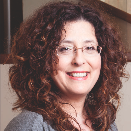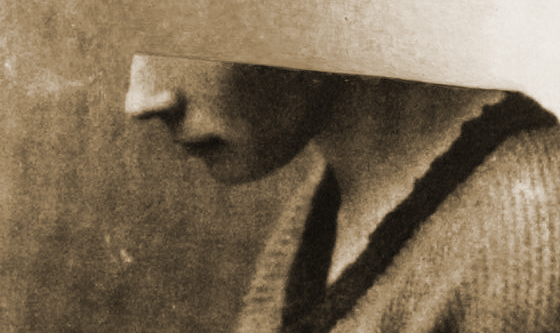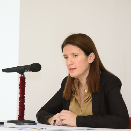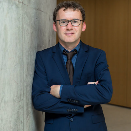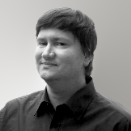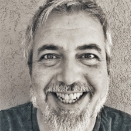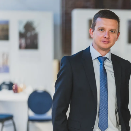About This Course
In this free online course, our goal is to introduce you to the richness and vibrancy of Jewish history and culture from the comfort of your home. It’s flexible and interactive, allowing you to study at your own pace and to delve into a variety of resources from Germany, Greece, Poland and Serbia.
Six partners have joined their forces to explore issues relating to Jewish life and modern antisemitism in Europe, including: how did Jewish communities emerge and flourishe in different parts of Europe? What are the different kinds of antisemitism? How did it manifest in different places in Europe? How is antisemitism related to the Holocaust? How is antisemitism expressed today? How could we combat antisemitism?
What topics will you cover?
• Jewish life and history in the heart of Europe (Poland, Germany) but also in the periphery (Serbia and Greece)
• The perception of Jewish identity by reading and listening to oral testimonies of Holocaust survivors and second generation Holocaust survivors
• The numerous kinds of antisemitic narratives
• The variety of manifestations of antisemitism
• Ways to debunk antisemitic myths
• The ways the Holocaust unfolded in its epicenter (Germany and Poland) as well as in its periphery (Greece and Serbia)
• The use of symbolic language to combat antisemitism
Course Staff
Zanet Battinou
Zanet Battinou is a native of Ioannina and of the local Jewish Community. She studied Archaeology and Museology and is the Director of the Jewish Museum of Greece. She represents the JMG in organisations such as ICOM and AEJM. She has attended the biannual meetings of the International Holocaust Remembrance Alliance (IHRA) since 2000 as a member of the Greek National Delegation, while since 2005, she has served as a delegate in the Museums & Memorials Working Group of the organisation. Under her leadership, the JMG initiated Holocaust Education in Greece in 2001 and still works at the forefront of all relevant initiatives and actions.
Dr. Alexandra Patrikiou
Alexandra Patrikiou holds a PhD in Contemporary Greek History and since 2017 she has been working as a researcher at the Jewish Museum of Greece, responsible for Holocaust Education and Research.
Fabian Rühle
Fabian Rühle is Centropa European Education Director, developing materials and running seminars for teachers all over Europe. He grew up in East Berlin but emigrated with his family to West Berlin in 1988. Fabian joined Centropa in 2008. He is also their liaison for European governments and foundations, and he coordinates fundraising in Europe. In 2015, he opened Centropa’s German office and is now based in Hamburg. Fabian has a master’s degree in History from the Free University of Berlin and Rutgers University, New Jersey. Before joining Centropa, he worked for the American Jewish Committee Berlin.
Stefan May
Stefan May has worked as a Project Management Assistant for Jugend- & Kulturprojekt e.V. in Dresden, Germany, since March 2020. His tasks, mainly related to the implementation of European projects, include the development of educational materials like those for the HANNAH project. He grew up in Dresden but has also lived in Brussels (Belgium), Wroclaw (Poland) and Texas (USA).
Stefan holds a MA in Modern History and Political Science from the TU Dresden. Before he joined Jugend- & Kulturprojekt e.V., he worked for a Dresden art gallery, in marketing and public relations for international corporations and as university student was active on the local as well as the European level of AEGEE.
Miško Stanišiс
Miško Stanišić is director of Terraforming, a Novi Sad-based NGO committed to promoting and improving teaching and learning about the Holocaust and combating antisemitism, antigypsyism and other forms of xenophobia. Since the foundation of Terraforming in 2008, Miško has set up cross-sectoral international projects and events engaging Serbian and international experts, public institutions, archives, libraries, museums, artists, minority communities, and civil society actors in exploring new approaches to education and remembrance culture.
Miško studied General Law at Sarajevo University and Digital Media & Pedagogy in Stockholm, specializing in adult education.
Miško is a member of the delegation of the Republic of Serbia in the International Holocaust Remembrance Alliance IHRA, where he is a member of the IHRA Working Group for Education and the Committee for Genocide against the Roma.
Bartosz Duszyński
Bartosz Duszyński worked as Education Assistant at the Galicia Jewish Museum from 2018 to 2022. His research interests are related to the Holocaust and contemporary Israel. He also organises meetings between Polish and Israeli students. What gives him the greatest satisfaction is the opportunity to pass on his knowledge of the history and culture of Polish Jews. He is a graduate in Jewish Studies (MA) and Middle Eastern Studies (BA) at Jagiellonian University, where he is now a PhD candidate in the Faculty of History.
